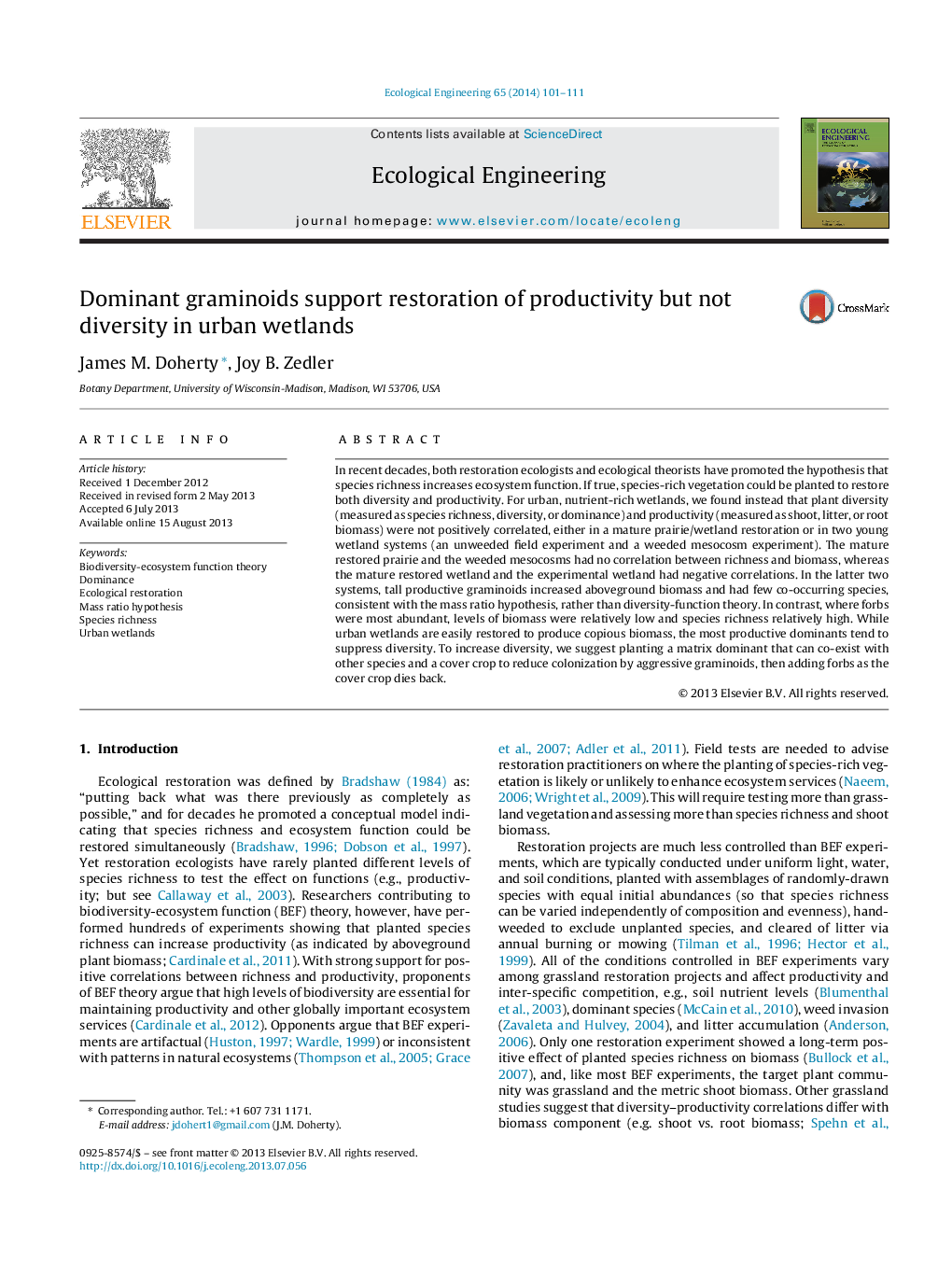| Article ID | Journal | Published Year | Pages | File Type |
|---|---|---|---|---|
| 4389449 | Ecological Engineering | 2014 | 11 Pages |
•We reject a long-standing paradigm in restoration that diversity begets function.•In unweeded wetlands species richness–biomass relationships were negative.•Dominants controlled biomass and richness, consistent with the mass ratio hypothesis.•Graminoids increased biomass and decreased richness; forbs did the opposite.•We recommend species-rich plantings only after “matrix” dominants are established.
In recent decades, both restoration ecologists and ecological theorists have promoted the hypothesis that species richness increases ecosystem function. If true, species-rich vegetation could be planted to restore both diversity and productivity. For urban, nutrient-rich wetlands, we found instead that plant diversity (measured as species richness, diversity, or dominance) and productivity (measured as shoot, litter, or root biomass) were not positively correlated, either in a mature prairie/wetland restoration or in two young wetland systems (an unweeded field experiment and a weeded mesocosm experiment). The mature restored prairie and the weeded mesocosms had no correlation between richness and biomass, whereas the mature restored wetland and the experimental wetland had negative correlations. In the latter two systems, tall productive graminoids increased aboveground biomass and had few co-occurring species, consistent with the mass ratio hypothesis, rather than diversity-function theory. In contrast, where forbs were most abundant, levels of biomass were relatively low and species richness relatively high. While urban wetlands are easily restored to produce copious biomass, the most productive dominants tend to suppress diversity. To increase diversity, we suggest planting a matrix dominant that can co-exist with other species and a cover crop to reduce colonization by aggressive graminoids, then adding forbs as the cover crop dies back.
